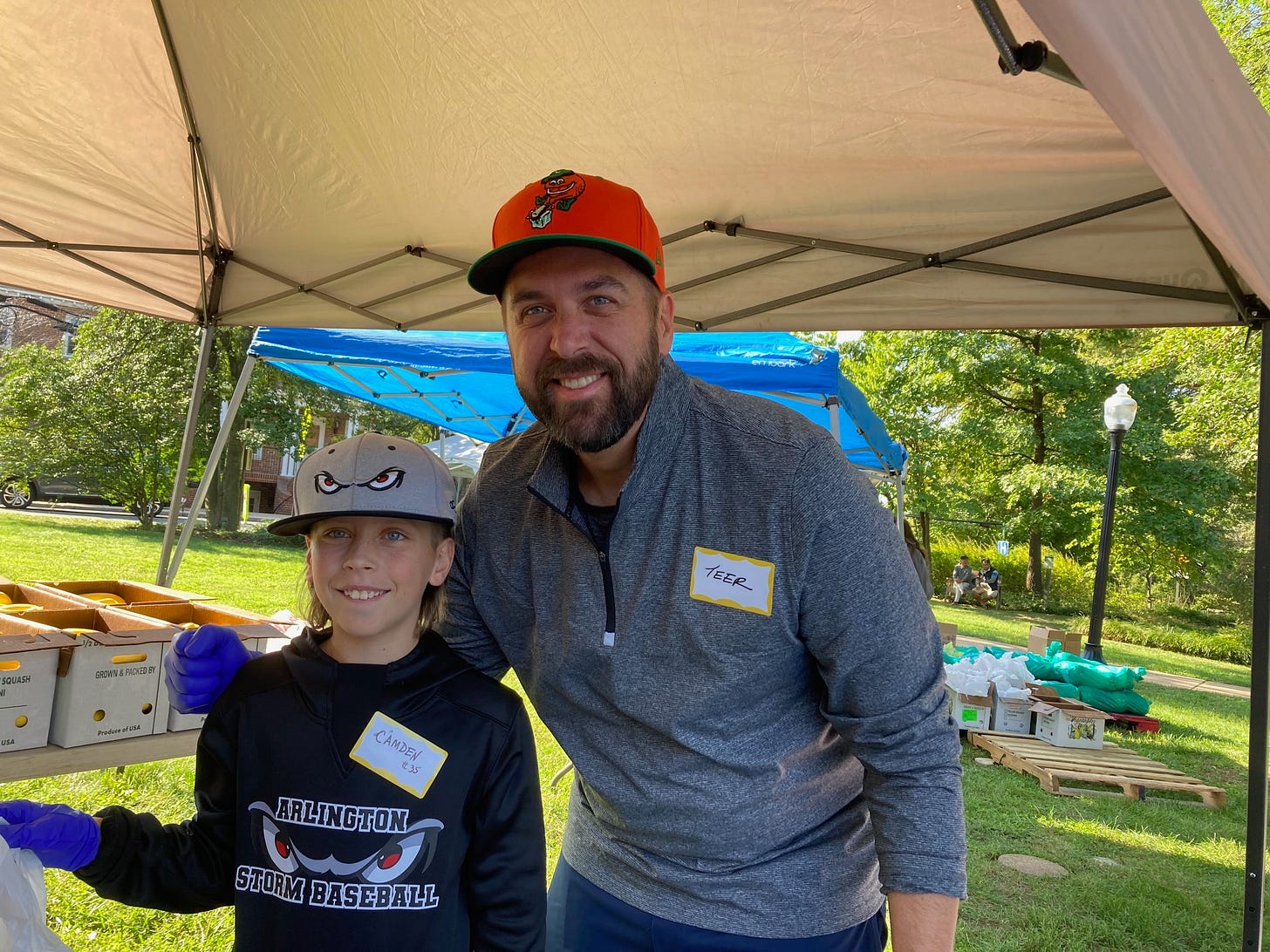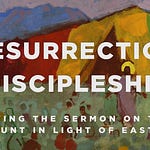A few weeks ago, several of us from the Chapel joined our partners at Mount Olivet for a morning of service. Community Assistance is a stop-gap ministry providing food to those on the margins in our community. I took my two children with me, and as guests began to cue up, we packed food into plastic bags – 15 jalapenos in one bag and 6 green peppers in the next. As we were working, I had the opportunity to catch up with old friends and make new ones. While it is always great to catch up with friends and make new ones, along with seeing your kids understand what it means to love their neighbors, I was struck by the simplicity of serving.
Considering the numbers – 335 households, 1115 individuals, 374 children – simple is not a word that comes to mind. Simplicity, though, is what was happening.
15 jalapenos in this bag. 6 green peppers in that bag. Move the boxes. Break down the boxes.
Repeat.
As small as each act was, there was something deeper happening. These small acts, these simple acts, combined with others serving and the presence of Jesus along with the movement of the Holy Spirit, were in their own way a reflection of the gospel – a gospel that calls us to a strange and beautiful life of giving, generosity, and blessing others because we have been changed, been made new, by God’s grace.
Paul begins chapter eight of Romans with an astonishing declaration, “There is therefore now no condemnation for those who are in Christ Jesus.”
No condemnation! None! Nada! Not an ounce!
For those who have heard the gospel of years, for those familiar with wooden church pews or the consistency of the church’s liturgy, we may gloss over Paul’s declaration. But think about it for a moment: in Christ, through Christ, and because of Christ, we are not condemned. All of the mistakes, missteps, and times we have fallen short are not held against us. We have heard Taylor Swift say, “It’s me, hi, I’m the problem,“ but God says that what we or others say makes us the problem - our shortfalls and failures - are no problem at all.
The beautiful and strange truth of the gospel is that in Christ, we are free. It is not that we have somehow earned this freedom. No, it is that we have died; our lives are now hidden with Christ.
Paul is giving us the key to living a generous life. You see, the world tells us we are what we accomplish. We are measured by what we produce, the size of our bank accounts, the model year of our cars, the number of people who follow us on social media, and the accolades on our CVs. But the gospel of Jesus Christ flips all of that upside down. In Christ, we have died to that way of living. We have died to the need to prove ourselves, to the need to accumulate and hoard.
When God the Creator looks at us, they do not see what we have accumulated or our failures and shortcomings. The Father sees the Son. And that changes everything.
In Christ, we are free from condemnation. Free from the pressure to live up to the world’s standard of success and the expectations of how we should live once we have achieved that standard. And because of this freedom, we are free to give generously in ways that seem odd to the rest of the world. Later in chapter eight, Paul says, “For to set the mind on the flesh is death, but to set the mind on the Spirit is life and peace.” The mindset of the flesh is caught up in the endless chase for more money, recognition, and security. That is a mindset on death.
When we set our minds on Christ, living open to the movement of the Holy Spirit, we find life. We find peace. We find that we are already abundantly blessed, and from that place of blessing, we can bless others. That is the generosity the gospel calls us to, which flows out of the overflowing of those in Christ Jesus.
We give because Christ has already given everything.
To be a church that lives, gives, and serves with a cup that runs over is to be shaped by the love of Christ and the grace of God. As that love fills us and begins to spill over, it cannot help but splash into every part of our lives.
And let’s be clear – we are not giving out of obligation. This is not about quota, status, membership fees, or guilt. The gospel does not compel us to give because we have to. We give because of what we have received from Christ, namely freedom from guilt and obligation.
This is what Paul means when he says, “There is therefore now no condemnation for those who are in Christ Jesus.” We have been set free. You have been set free. And this freedom is not just personal. It is not a freedom to keep to yourself. The freedom given to us by Christ invites us and calls us to live our lives for others, to give ourselves away.
As Jesus pours out his love through us, may others encounter Christ. May they, may you, find hope in the grace of God that overflows like a cup running over.















Share this post